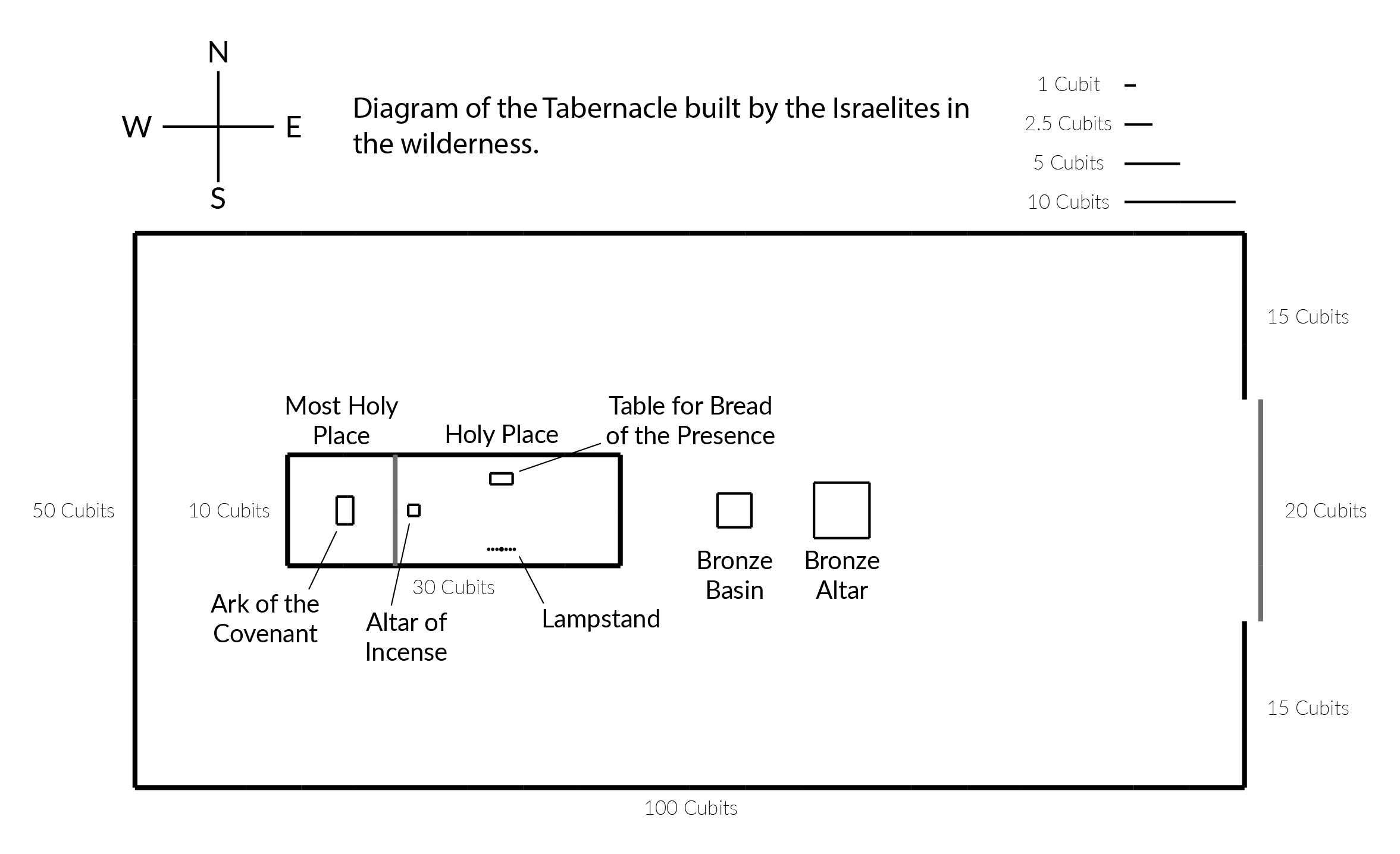Leviticus 27 Summary: A Short Breakdown in 5 Minutes
Leviticus 27 Summary - A Quick Overview
WHEN:
Leviticus picks up where Exodus left off. The children of Israel are on their way through the wilderness to the Canaan land.
According to Leviticus 8, the Tabernacle had already been erected, which would place the year at approximately 1490 B.C. (one year after the Israelites left Egypt).
DEFINITIONS:
Shekel – A shekel was a weight measurement used for money. It was equivalent to approximately 0.4 ounces or 11 grams. 20 gerahs were equal to 1 shekel.
TABERNACLE DIAGRAM
OUTLINE:
THE VALUE OF PERSONS DEDICATED TO THE LORD WITH A VOW (27:1-8):
The Israelites had the ability to symbolically dedicate another person to the Lord through a payment of money.
The amount of money depended on the gender and age of the person being dedicated.
A man between the age of 20-60 was valued at 50 shekels of silver. A woman of the same age was valued at 30 shekels.
A male between the ages of 5-20 could be dedicated for 20 shekels and a female between 5-20 years old for 10 shekels.
A male between 1 month old and 5 years old was valued at 5 shekels. Female children of similar age could be dedicated to God for 3 shekels.
A male or female exceeding the age of 60 was valued at 15 shekels and 10 shekels, respectively.
Provisions were made for poor people who couldn’t pay these prices.
DEDICATING ANIMALS TO THE LORD WITH A VOW (27:9-13):
If a man made a vow and dedicated an animal to God, he was not to substitute the animal when it came time to fulfill the vow.
If the animal was unclean and couldn’t be offered as a sacrifice in the Tabernacle, it was to be brought to the priests for valuation.
Rather than sacrificing the animal, the one who made the vow would pay the price specified by the priests.
DEDICATING HOUSES AND LAND WITH A VOW (27:14-24):
Houses and land could also be dedicated to God.
If a man dedicated his land, the land would be given to the priests in the year of jubilee.
If a man dedicated land he had purchased from another Israelite, the land would be given back to the original owner on the year of jubilee.
RENDER TO GOD THE THINGS THAT ARE GOD’S (27:25-34):
When the Israelites entered Canaan, they were not to neglect giving God what belonged to Him.
The firstborn of all animals and a tithe of produce and livestock was to be given to God regularly.
The final verse of Leviticus tells us these commands were given to Moses when God spoke with him on Mount Sinai.
APPLICATION:
Taking oaths and making promises shouldn’t be taken lightly.
Jesus instructed His disciples to be trustworthy and to keep their word.
Mat 5:37 - Let what you say be simply ‘Yes’ or ‘No’; anything more than this comes from evil.
God always keeps His word to us, so if we want to reflect Him to the people we meet, we need to be as trustworthy Him (to the best of our ability).


